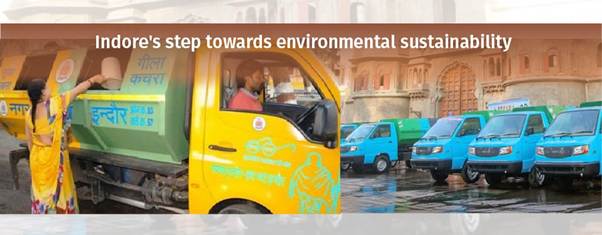JUNE 17: India’s urban sanitation landscape is undergoing a sustainable transformation, as electric vehicles (EVs) are being deployed for household waste collection under the Swachh Bharat Mission-Urban (SBM-U). This progressive move combines the mission’s core vision of a “Garbage-Free City” with clean mobility, offering a model of low-emission, efficient waste management.
In Guntur, Andhra Pradesh, over 200 electric autos have replaced diesel-powered garbage vehicles for door-to-door waste collection. Supported by the United Nations Industrial Development Organization (UNIDO) and the Global Environment Facility (GEF) under the Sustainable Cities Integrated Approach Pilot (SCIAP), this green transition covers 159.46 sq. km and eliminates the need for approximately 71,000 litres of diesel annually. The initiative is expected to reduce greenhouse gas emissions by an estimated 21,000 tonnes over the next decade. Equipped with GPS for real-time tracking, the EVs also lower maintenance costs and offer longer operational lifespan, while creating jobs and improving reliability of municipal services.
Chennai, through the Greater Chennai Corporation (GCC), has launched a large-scale deployment of 5,478 battery-operated electric rickshaws across its 15 zones, covering over 24,000 streets and 2.1 million households. Each vehicle is designed for source-level waste segregation and is equipped with separate bins for wet, dry, and hazardous waste. This effort results in a daily reduction of around 41 tons of carbon emissions, totaling over 15,000 tons annually. With audio systems installed for public awareness and dedicated songs promoting waste segregation, Chennai’s approach integrates environmental sustainability with civic engagement and education.
Meanwhile, Indore Municipal Corporation has rolled out 100 electric vehicles in key areas such as Rajwada. These vehicles are connected to the Integrated Command and Control Center (ICCC) for real-time monitoring. Indore’s initiative is projected to cut approximately 24,918 tons of carbon emissions annually and save nearly ₹5.97 crore per year in fuel and maintenance. The city has also established 20 solar-powered charging stations, each capable of charging up to 100 vehicles daily, further reducing dependence on fossil fuels.
Together, these efforts reflect a national push towards smart, sustainable urban waste management. By integrating electric mobility, digital monitoring, and renewable energy, cities like Chennai, Indore, and Guntur are leading the way toward a cleaner, greener, and more resilient urban future under SBM-U.



















